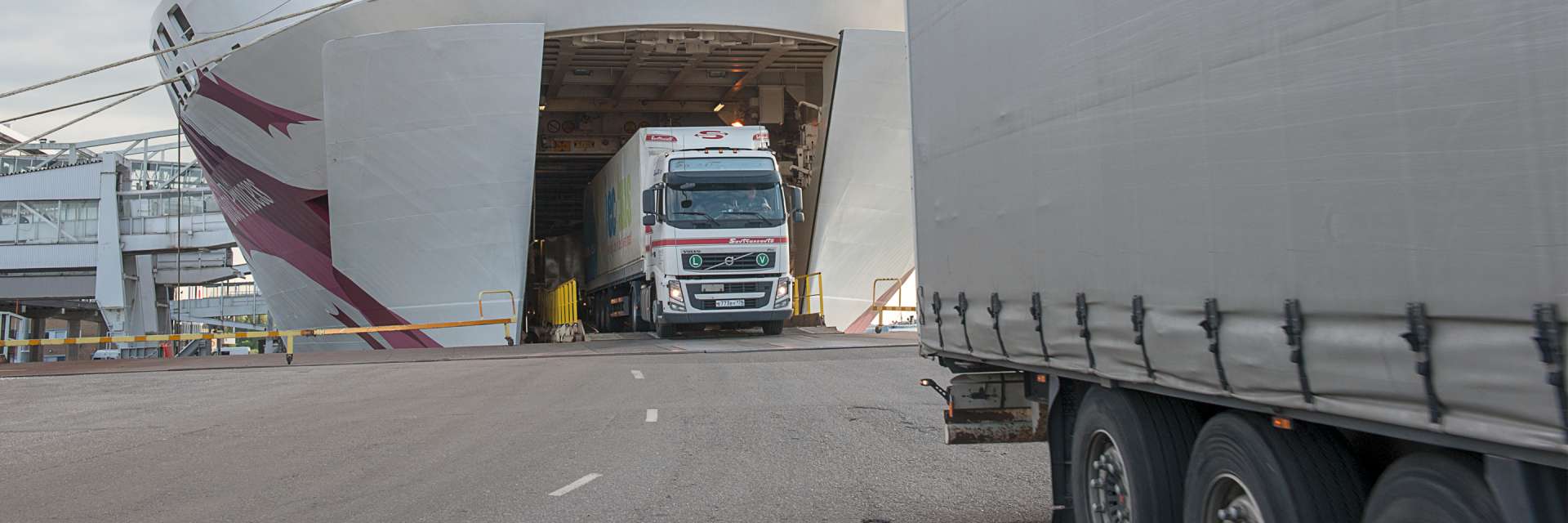Pauliina Roti
HR & Security Manager

When units carrying dangerous goods are brought to the port area, they have to be marked with class specific symbols of dangerous goods in accordance with the IMDG-code. The Port supervises the transports of dangerous goods in its administrative area and will immediately act on any neglects,
The Port approves the use of ADR/RID in the port area, if the transports are integrally related to the transport chain (e.g. a truck or train loads/unloads in a terminal). The Port of Turku follows this procedure in limited fashion. If a unit is brought to the waiting area of dangerous goods in the Port, the use of ADR/RID is not possible. The prohibition is based on the fact that ADR/RID uses free classes, and the unit need not be marked with danger symbols, as a result of which the segregation requirements between different units are impossible to implement.
The one who unloads and cleans the unit also removes the labels. Stickers in accordance with the IMDG code on empty transport units must not be removed before the unit has been appropriately cleaned. The Port does not remove the labels from unloaded units, but has the unit(s) transported to the restricted storage area for dangerous goods at the expense of the person responsible for the matter.
The advance notification / -inquiry shall be made to the Vessel services through PortNet, e-mail or by fax using a form that meets all statutory requirements. (Supplements 3 and 4)
The Port will not reply to defectively filled out inquiries and therefore will not grant a permit for the requested shipments. The advance notification on import/export taking place at weekend or holiday must be submitted to the Port of Turku 24 hours earlier on the preceding business day.
An advance notification must be submitted on all dangerous goods (goods in the IMDG code, excluding liquid fuels transported as bulk) to be transported through the Port of Turku. The notification shall be made in time, at least 24 hours before the cargo unit is brought to the Port. The consignor is responsible for the notification. Dangerous goods that have not been reported will not be taken in.
When transporting extremely dangerous goods or other dangerous goods weighing more than 120,000 kg, in addition to an advance notification, an advance inquiry must be submitted three days before the arrival to the Port of Turku.
Goods in the IMDG class 1 (explosives), 5.2 (organic peroxides) and 7 (radioactive substances) must be transported directly out of the port area, or in case of export must be loaded directly on the ship without delay.
When transporting extremely dangerous goods, it must be ensured with an advance inquiry whether the shipment can be transported via the Port. The advance inquiry must be submitted three days earlier to the Port of Turku. Extremely dangerous substances include:
The advance inquiry also applies to all other IMDG classes in case of large shipments (over 120,000 kg). Division 1.4S does not fall under advance inquiry.
All transports falling under advance inquiry are direct exports/imports. They must be picked up directly from the ship or driven directly to the ship. They must not be stored even temporarily in the port area.
